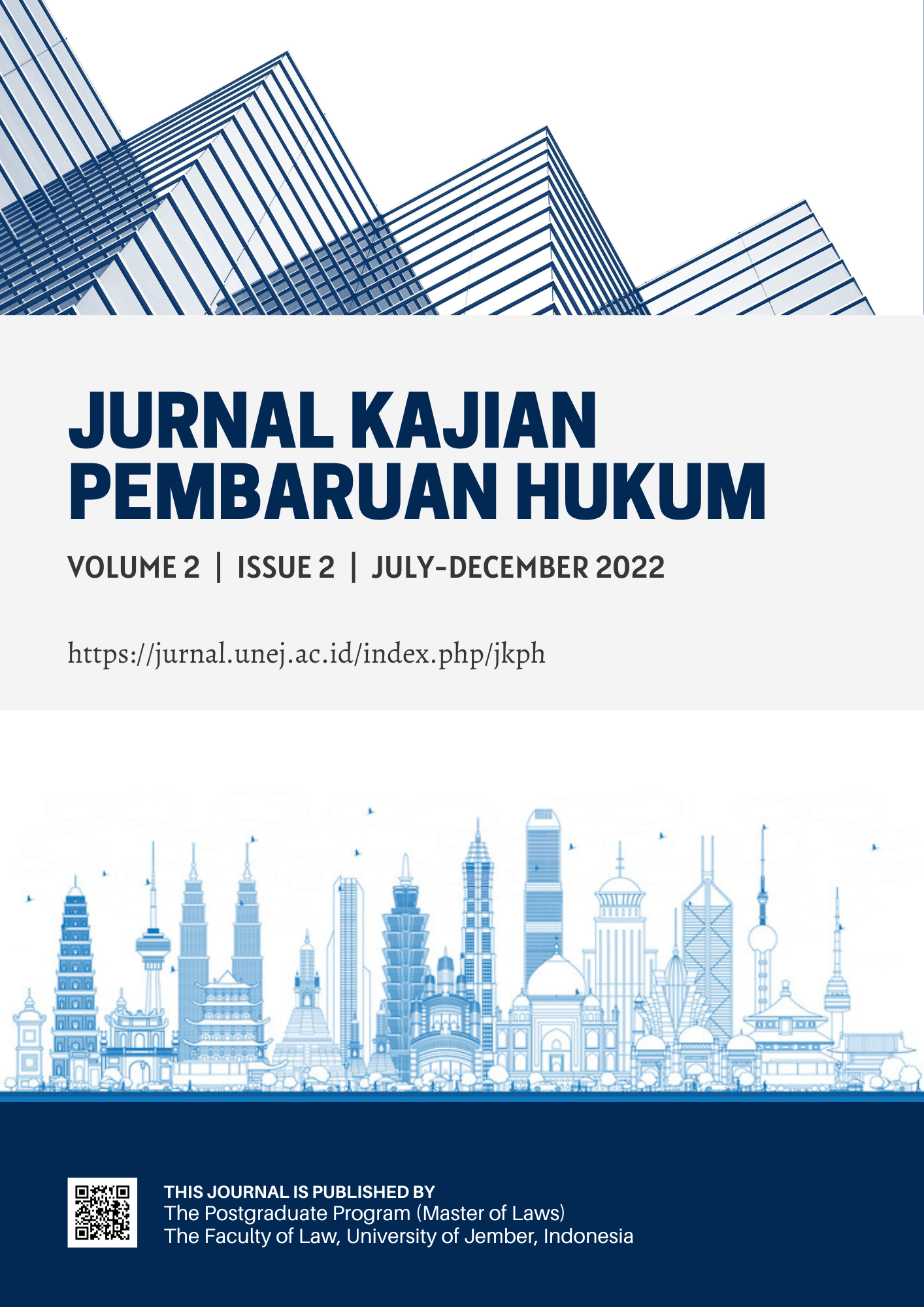Bajo Tribal Marine Customary Rights Supervision: A Reform with Archipelagic Characteristics
DOI:
https://doi.org/10.19184/jkph.v2i2.25255Abstract
There are provinces in Indonesia considered “archipelagic†and “non-archipelagic.†One criterion is to determine whether a province has an ocean wider than the land, with the so-called matter of geography. The issue raised here is a condition where an archipelagic custom exists in a non-archipelagic province. Such a gap between geographical concern and customary characteristics brings at least two consequences. First, a non-archipelagic province has been set out in the international customary law of the sea, including the 1982 UNCLOS on Traditional Fisheries Rights and the law on the Management of Coastal Islands and Small Islands. Second is the problem of recognizing a unique coastal-oceanic socio-culture in that province. This study was motivated to bridge the two, i.e., the legal and socio-cultural case of the Bajo Tribe in Gorontalo Province. Bajo is a tribe with an archipelagic socio-cultural tradition, while Gorontalo is categorized as a non-archipelagic province. So far, there is no clear legal framework on how the national and international laws captured the existing tradition, custom, and wisdom, as shown in Bajo’s. In this regard, a normative legal method was used by collecting and analyzing how national and international instruments answered the call from the Bajo Community. This study found that, at the core, the main issue was the gap of recognition between geography and socio-cultural perspectives in policy-making. This study also found that the Bajo has experienced a limbo due to the no clear policy on how the existence of their community is accommodated. Finally, this research suggested that an archipelagic tradition such as Bajo’s should be recognized in the non-archipelagic province’s policy to construct a bridge connecting geography and socio-cultural tradition.
Downloads
Downloads
Published
Issue
Section
License
Copyright (c) 2022 Jurnal Kajian Pembaruan Hukum

This work is licensed under a Creative Commons Attribution-ShareAlike 4.0 International License.







